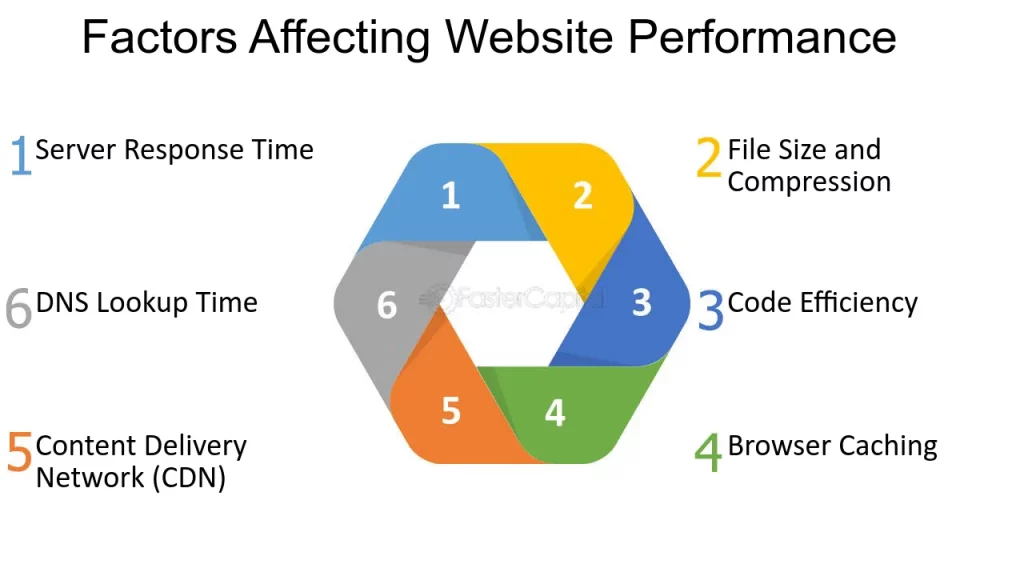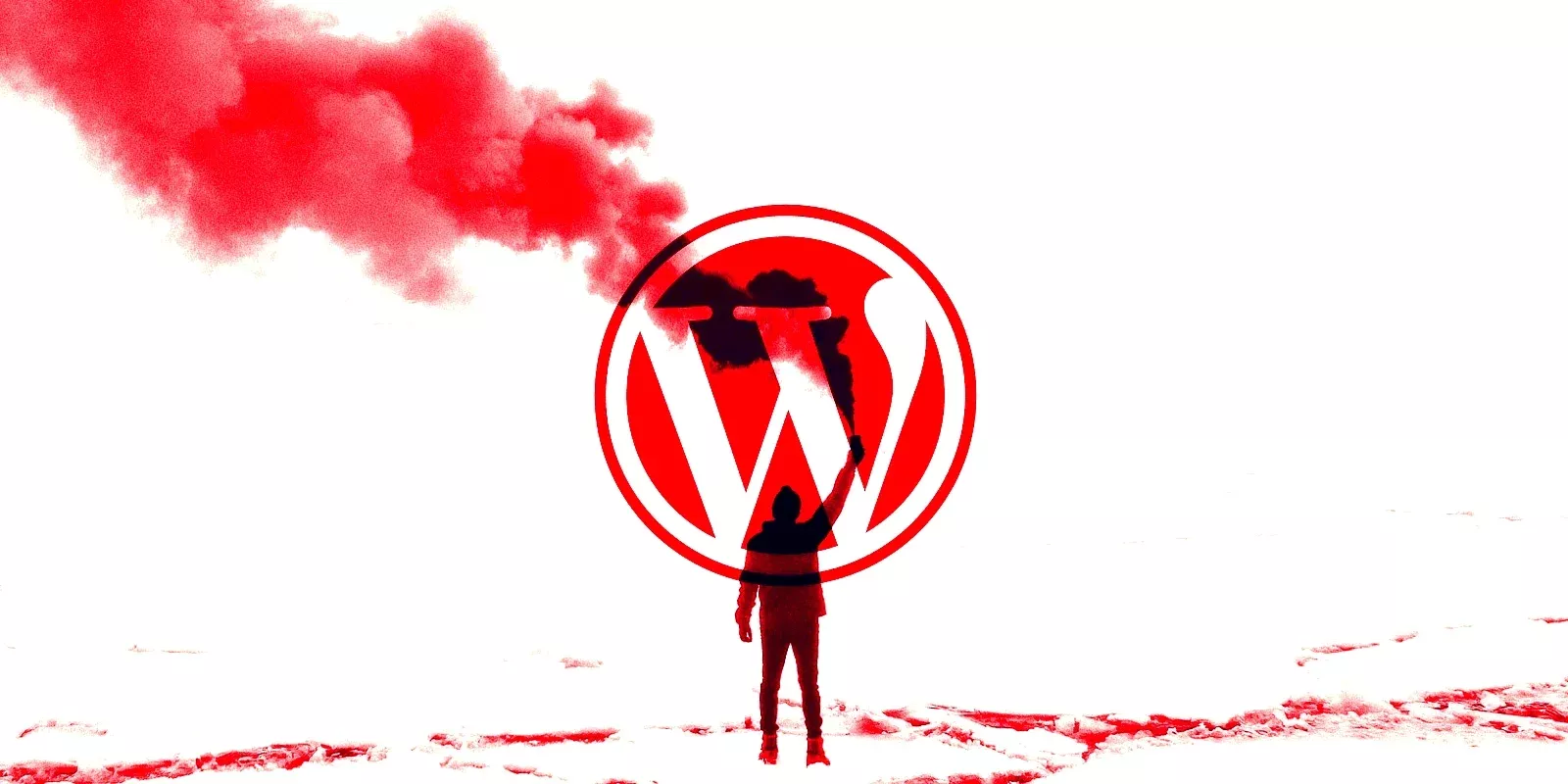
In an online world where speed can make or break your website, ensuring your WordPress site is optimally fast is crucial. A slow website not only affects user experience but can also negatively impact your site’s search engine rankings. This comprehensive guide will walk you through various strategies to enhance your WordPress website’s speed, from hosting choices to advanced caching techniques.
Quick Links
- Why Is My WordPress Website Slow?
- How Can I Choose The Best Hosting For Speed?
- What Are The Best Practices for Selecting WordPress Themes For Speed
- How Do Plugins Affect My Website Speed and Which Plugins do I Avoid?
- Advantages Hosting Your Website With Zerophoid
- Minifying CSS and Javascript Files for Better Speed
- Implementing Lazy Loading to Speed Up Your WordPress Website
- Optimising WordPress for Mobile Users
- The Impact of SSL/HTTPS on Website Speed
- Monitoring Tools For WordPress Performance
Why Is My WordPress Website Slow?

Your WordPress website might feel like it’s moving at a snail’s pace, and quite often, the root of this sluggishness is where your site lives: its hosting environment. Picture living in a crowded apartment with shared resources; if everyone’s streaming or cooking at the same time, things slow down. That’s what happens with shared hosting. Your site is vying for resources with many neighbours, leading to potential slowdowns, especially during high traffic times. Switching to a dedicated or managed WordPress hosting is like moving to your own place with all the resources just for you, making everything run smoother and faster, which is not just great for user experience but also a thumbs up for your site’s SEO rankings.
How Can I Choose The Best Hosting For Speed?
Selecting the best hosting for speed is akin to choosing the perfect engine for your car; it’s essential for ensuring everything runs smoothly and swiftly. Focus on location, power, and specific tuning for your needs. Aim for a hosting provider with servers close to your audience; this minimizes data travel time, speeding up load times. Seek out options offering dedicated resources—this means your site won’t have to jostle for server space and power as it might on shared hosting. Additionally, prioritise WordPress-specific optimisations; some hosts are fine-tuned just for WordPress, making your site operate at peak efficiency. Delve into performance reviews to gauge how different hosts measure up, and give preference to those providing SSD storage for rapid data access, ample RAM to smoothly handle your site’s demands, and low-density servers, ensuring your website has the room it needs to deliver content quickly to your visitors.
What Are The Best Practices for Selecting WordPress Themes For Speed
When it comes to WordPress themes, their impact on your site’s speed can be substantial. Take Yootheme as an example—it’s a fast WordPress theme that brilliantly balances speed optimisation with appealing aesthetics and robust functionality. In your quest for the perfect theme, prioritise those that are lightweight and well-coded, as these qualities are essential for maintaining high speed. Also, look for themes that are regularly updated to stay in sync with the latest WordPress core updates. This ensures compatibility and security, alongside speed.
Storing Backups: Website vs. External Cloud Server
When it comes to storing backups, opting for an external Cloud Server is the way to go. While it might seem convenient to store backups on your site, this approach can consume precious storage space and potentially slow down your website. Cloud servers, on the other hand, offer enhanced security and guarantee that your site’s performance remains unaffected by the storage demands of large backup files. This external storage method keeps your website nimble and ensures quick recovery in any situation.
How Do Plugins Affect My Website Speed and Which Plugins do I Avoid?
Plugins are a double-edged sword for WordPress sites; they offer added functionality but can be detrimental to website speed if not chosen wisely. The key is to steer clear of plugins that unnecessarily load scripts, styles, or database queries on every page. This excess baggage can drag your site down, making pages take longer to load. Instead, gravitate towards plugins that are well-maintained and have garnered positive reviews for their performance and support. These are usually optimised for efficiency and won’t bog down your site.
What Is Browser Caching and Its Benefits for Website Performance
Browser caching is a technique that lets web browsers store copies of your website’s pages. This method reduces the strain on your server and allows pages to load more quickly for visitors who return to your site. By remembering previously loaded resources, the browser can cut down on the number of requests sent to the server, speeding up the loading process for users. Implementing browser caching can be done via WordPress caching plugins or by making .htaccess file modifications. This is a straightforward yet powerful way to enhance your website’s performance, making it more efficient for repeat visitors.
Advantages Hosting Your Website With Zerophoid
We’re not big into showing loads of hosting package options, we prefer to provide Premium WordPress Hosting for the right type of WordPress Website. We provide speed, security, and reliability which are all important factors that you need to consider when choosing your WordPress hosting. A unique selling point is all our WordPress Hosting Packages include include our WordPress Maintenance Service
The Importance Of Database Optimisation in WordPress
Database optimisation in WordPress is crucial for maintaining your website’s performance and speed. Over time, your WordPress database can accumulate unnecessary data such as post revisions, spam comments, and transient options, leading to bloat. This bloat can slow down your website by increasing the time it takes to retrieve information from the database.
Efficiently optimising your database ensures that it runs queries as quickly as possible, directly boosting the speed of your website. It involves cleaning up unused data, optimising the database’s structure, and even implementing caching strategies to reduce the load on the database.
Regular database optimisation can also improve website reliability and usability, ensuring that your visitors have the best experience possible. By keeping your database lean and organised, you ensure that your site remains fast, responsive, and capable of handling traffic efficiently, which is vital for SEO rankings and user satisfaction.
Minifying CSS and Javascript Files for Better Speed
Minifying CSS and JavaScript files is a key strategy for enhancing your website’s speed. This process involves stripping away all the unnecessary characters from your CSS and JavaScript files—think of spaces, line breaks, comments, and other non-essential elements—that don’t affect the functionality of the code but do take up extra space.
By utilising tools and plugins designed for magnification, you can significantly reduce the size of these files. Smaller file sizes mean quicker loading times for your visitors, as there’s less data for their browsers to download. This not only improves the user experience by making your website snappier and more responsive but also can positively impact your site’s SEO since page load speed is a factor considered by search engines when ranking sites.
Implementing magnification as part of your website’s optimisation routine is a straightforward yet effective way to ensure your site remains as fast and efficient as possible, catering to the high-speed expectations of modern web users.
Implementing Lazy Loading to Speed Up Your WordPress Website
Implementing lazy loading is a savvy technique to speed up your WordPress website. This method works by loading images, videos, and other content only as they’re about to enter the viewer’s screen, rather than loading all page elements upfront. By doing so, lazy loading significantly reduces initial page load times, enhances bandwidth usage, and improves the overall user experience on your site.
When a visitor navigates to a page, only the content visible in their viewport is loaded initially. As they scroll down, the rest of the content begins to load just in time for viewing. This on-demand loading can be particularly beneficial for pages with a lot of images or videos, making them much more responsive and reducing the time visitors have to wait for pages to become interactive.
For WordPress users, implementing lazy loading can be as simple as using a plugin that adds this functionality to your website without needing to write any code. Many modern WordPress themes and plugins already include lazy loading, or it can be easily added through additional plugins specifically designed for this purpose. This makes it an accessible and effective strategy for improving site speed and enhancing the visitor experience.
Optimising WordPress for Mobile Users
Optimising your WordPress site for mobile users is crucial, given that more than half of all web traffic now originates from mobile devices. To ensure your site offers a seamless and fast experience on smartphones and tablets, several key strategies should be employed.
Firstly, responsive design is fundamental. This approach ensures your website automatically adjusts its layout, images, and functionalities to match the screen size and resolution of the device it’s being viewed on. A responsive website not only improves usability but also contributes to better SEO rankings, as search engines favour mobile-friendly sites.
Additionally, consider implementing mobile optimisation strategies specific to WordPress. This could involve using plugins that optimize images for mobile, streamline navigation for touch screens, and reduce the overall load time on mobile devices. Ensuring that your theme and plugins are optimised can significantly enhance the mobile user experience.
The Impact of SSL/HTTPS on Website Speed
Implementing SSL/HTTPS is non-negotiable for website security, providing a secure channel for information to travel between a web server and a browser. However, it’s important to note that adding encryption through SSL/HTTPS can have an impact on website speed. This is primarily due to the SSL handshake process, which involves multiple steps to verify the SSL certificate and establish a secure connection before any actual data can be transferred.
Despite this, you don’t have to sacrifice speed for security. Through efficient SSL optimisation techniques, you can minimize the impact on load times. One key strategy is selecting SSL certificates known for their fast handshake times. Some certificates are optimised for performance, reducing the time it takes to establish a secure connection.
In summary, while SSL/HTTPS is essential for safeguarding your site, it doesn’t have to slow you down. By choosing the right certificates and leveraging modern protocols and optimisation techniques, you can maintain, and sometimes even improve, your site’s speed while ensuring the highest level of security.
Regular Updates and Maintenance: A Key to Speed Up Your WordPress Website
Regular updates and maintenance are vital for keeping your WordPress site speedy and secure. Just like a well-oiled machine runs more efficiently, a regularly updated WordPress site performs better in terms of both speed and security. These updates often include performance improvements, bug fixes, and crucial security patches that keep your site running smoothly and protect against vulnerabilities.
This principle doesn’t just apply to the WordPress core; it’s equally important for themes and plugins. An outdated plugin or theme can not only introduce security risks but can also become a bottleneck for site performance, leading to slower load times and a poorer user experience. Moreover, regular maintenance tasks such as cleaning up your database, checking for broken links, and optimizing images can further enhance your site’s performance.
Monitoring Tools For WordPress Performance
To effectively manage and enhance your WordPress site’s speed, it’s crucial to have a reliable way to monitor its performance. Fortunately, there are several tools available that can help you keep a close eye on how your site is performing and pinpoint areas for improvement. Google PageSpeed Insights, GTmetrix, and Pingdom are among the most widely recommended tools for this purpose.
- Google PageSpeed Insights offers a performance score and actionable recommendations based on both mobile and desktop versions of your site. It analyses your site’s content and suggests ways to make your site faster and more efficient.
- GTmetrix provides a comprehensive look at your site’s loading time, performance score, and detailed recommendations for optimisation. It combines Google PageSpeed Insights’ data with Yahoo’s YSlow rules, offering a more in-depth analysis.
- Pingdom focuses on the real-world performance of your site, offering insights into load times, performance grades, and historical data to track your progress over time. It’s particularly useful for understanding how your site performs from different geographic locations.
Pros and Cons of Speeding Up Your WordPress Website
| Pros | Cons |
|---|---|
| Improved User Experience: Faster load times lead to a smoother browsing experience, keeping visitors on your site longer. | Potential Costs: Implementing certain speed optimisation techniques, like upgrading hosting, may incur additional costs. |
| Better SEO Rankings: Search engines favour faster websites, potentially boosting your site’s visibility in search results. | Time Investment: Optimising your site for speed can be time-consuming, especially when continuously monitoring and tweaking performance. |
| Increased Conversion Rates: A speedy site can improve conversion rates, as users are less likely to abandon a site that loads quickly. | Technical Challenges: Some optimisation strategies may require a technical understanding that goes beyond basic WordPress management. |
| Reduced Bounce Rates: Visitors are more likely to stay and explore a site that responds quickly to their actions. | Compatibility Issues: Certain optimisations, like aggressive caching or magnification, can lead to functionality or display issues with some themes or plugins. |
| Enhanced Mobile Performance: Speed optimisations are crucial for mobile users, who expect fast loading times on data connections. | Maintenance: Keeping the site optimised over time requires regular updates and checks, adding to the website’s maintenance workload. |
What are Some Advanced Caching Techniques for WordPress
Advanced caching techniques can play a pivotal role in enhancing the speed and efficiency of your WordPress site by reducing load times for both new and returning visitors. Here are some sophisticated strategies to consider:
- Object Caching: This method involves storing the results of database queries in memory, allowing for quicker retrieval on subsequent requests. Object caching is particularly effective for complex sites with heavy database interaction.
- Page Caching: By saving the dynamically generated HTML files on the server’s disk or in memory, page caching can significantly speed up the delivery of content by serving these pre-rendered files instead of generating them anew for each visit.
- OPcache: OPcache boosts PHP performance by storing precompiled script bytecode in shared memory. This reduces the time and resources required for PHP to load and parse scripts with every request, enhancing overall response times.
- CDN Caching: A Content Delivery Network (CDN) employs a global network of servers to deliver cached content from locations nearest to the visitor. This reduces latency by minimising the physical distance between the server and the user, making content delivery faster and more reliable.
- Browser Caching: This technique advises browsers to store specific static resources (like CSS files, JavaScript, and images) locally on the visitor’s device. By doing so, it reduces the need for repeated server requests for these resources, speeding up load times for users as they navigate through your site.
Reducing Server Response Time to Speed Up Your WordPress Website
Reducing server response time involves optimising your server’s software and hardware configurations. This can include upgrading to faster hardware, using a more efficient web server software, optimizing databases, and ensuring that your web hosting environment is properly configured for your WordPress site.
Free vs Premium WordPress Plugins To Speed Up Your WordPress Website
While many free plugins offer valuable functionality for speeding up your WordPress site, premium plugins often provide more advanced features, dedicated support, and regular updates. The decision to use free or premium plugins should be based on your specific needs, budget, and the level of support you require.
Site Sources
For the latest and most effective strategies on speeding up your WordPress site, consider visiting the following authoritative sources:
- WordPress Codex: The official manual for WordPress users, developers, and contributors.
- WPBeginner: A comprehensive resource for WordPress tutorials, tips, and tricks.
- WPMU DEV Blog: Offers advanced tutorials and insights on WordPress performance optimisation.
- Google PageSpeed Insights: A tool by Google that analyses the content of a web page, then generates suggestions to make that page faster.
Conclusion
Speeding up your WordPress website is an ongoing process that requires attention to various aspects, from hosting and themes to plugins and advanced caching techniques. By systematically addressing each factor, you can significantly improve your site’s performance, leading to a better user experience, higher search engine rankings, and increased conversions.
Key Takeaways
- Choosing the right hosting and a lightweight theme is foundational for a fast WordPress site.
- Regular maintenance, including updates and optimisations, is crucial for sustaining high performance.
- Advanced caching techniques and careful plugin management can significantly reduce load times.
- Monitoring your site’s performance is essential for identifying and addressing speed issues.
By following this comprehensive guide, you’re well on your way to optimising your WordPress website for speed and performance, ensuring a superior experience for your visitors and gaining an edge in the competitive online landscape.
Quick WordPress Website Fixes: WordPress Updates


